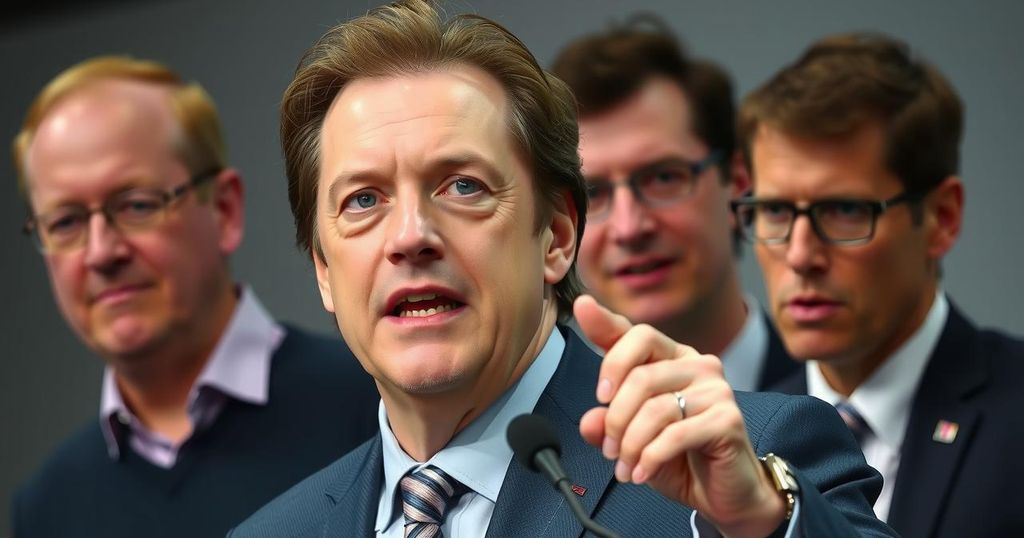German Government Responds to Musk’s Endorsement of AfD Ahead of Elections

Elon Musk’s endorsement of the far-right AfD party in Germany has drawn significant backlash, influencing the upcoming general election. Despite support for the party, concerns about its extremist ties persist, with government officials underscoring the need for vigilance. The incident also sparked debates about the limits of free expression in political discourse.
On Monday, the German government attempted to mitigate the ramifications of Elon Musk’s recent endorsement of the far-right Alternative for Germany (AfD) in the lead-up to the nation’s general elections. The endorsement, made public in an opinion piece published in a prominent newspaper, triggered significant backlash, including the resignation of the newspaper’s opinion editor. Government spokesperson Christiane Hoffmann remarked that while freedom of expression encompasses a wide range of viewpoints, including nonsensical ones, Musk’s maneuvers seem intended to sway the electoral process. Furthermore, she underscored that the AfD is under scrutiny by Germany’s domestic intelligence services for suspected extremist connections, a designation acknowledged by several German states.
Germany is approaching a critical early election scheduled for February 23, following the breakdown of Chancellor Olaf Scholz’s coalition government due to economic revitalization disputes. Musk’s commentary reiterated his steadfast support for the AfD, claiming that the party symbolizes Germany’s last hope and positing that it could lead the nation toward economic and cultural stability. Despite the party’s current polling strength, its candidate for chancellor, Alice Weidel, faces substantial hurdles in gaining widespread acceptance, as other political factions refuse to collaborate with the AfD.
Musk also strongly contested the narrative framing the AfD as extreme, referencing Weidel’s same-sex partner as a contradictory element to the alleged extremist label. His remarks have ignited discussions within German media regarding the limits of free expression, culminating in the resignation of the opinion editor Eva Marie Kogel, who publicly announced her departure through Musk’s social media platform, X. Internal criticism of the newspaper has emerged, focusing on the appropriateness of granting a platform to a foreign businessman to influence German politics.
The backdrop of this situation is centered on the impending early elections in Germany, slated for February 23, following the dissolution of Chancellor Olaf Scholz’s governing coalition. The Alternative for Germany (AfD) party, under scrutiny by local intelligence for potential right-wing extremist ties, has garnered notable public support, leading to complex dynamics within German political discourse. Elon Musk’s involvement has intensified debates surrounding freedom of speech versus responsible expression, particularly when foreign figures insert themselves into national electoral matters.
The German government’s response to Elon Musk’s endorsement of the AfD highlights a critical intersection of free speech and political influence amidst an important electoral period. While it showcases the influence of prominent figures in domestic politics, it also reveals the tensions surrounding extremist party perceptions within Germany. The reaction of the media and politicians alike emphasizes the delicate balance of fostering open dialogue while safeguarding democratic integrity during high-stakes elections.
Original Source: www.voanews.com







